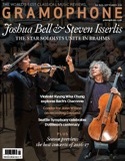Texte paru dans: / Appeared in: |
|
| "All in all, a great listen". |
Outil de traduction (Très approximatif) |
|
Reviewer:
Charlotte Gardner
As a general rule it’s a bad idea to make sweeping generalisations in print, even if all your internal instincts are baying at you to do so. Still, it’s reasonably safe to suggest that Carl Philipp Emanuel Bach’s music must be the most original composed during the 18th century; if you hear an orchestral work full of choppysounding phrases that either melodically or harmonically don’t do quite what you were anticipating, then chances are it’s the great JS’s second surviving son, who got stuck for over 30 years as harpsichord accompanist to King Frederick the Great. The three cello concertos on this disc are in fact a reminder of his frustrating professional circumstances; written in the early 1750s, they also exist in versions for flute and harpsichord, conjuring up mental images of the composer internally grimacing as his decent-but-not-outstanding flautist employer ploughed through them.
Nicolas
Altstaedt and the sinewy warmth of his 1760 Gigli are a great fit for this often
rather wild music. Take his entrance in the A major Concerto (Wq172), bringing
both a firm-toned energetic earthiness and a light, dance-like grace. Elsewhere
it’s his light touch that creates the tonal gold, for instance in the A minor
Concerto (Wq170) slow movement’s cadenza, one of a few cadenzas on the disc
written by Altstaedt and Jonathan Cohen, where certain notes are no more than
delicate fairy wisps. Arcangelo under Cohen also breathe the music, capturing
the frequent storminess but also bringing substantial dignity, their zing coming
from their actual tone and lucid textural balance; listen to the C major
luminosity with which they open that previously mentioned A minor Concerto’s
slow movement. All in all, a great listen. |
|




